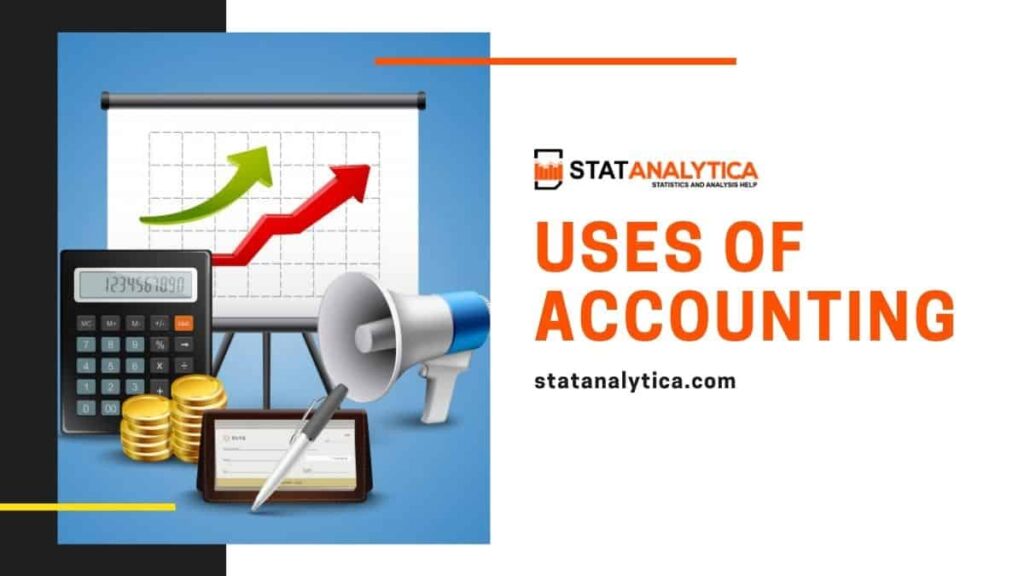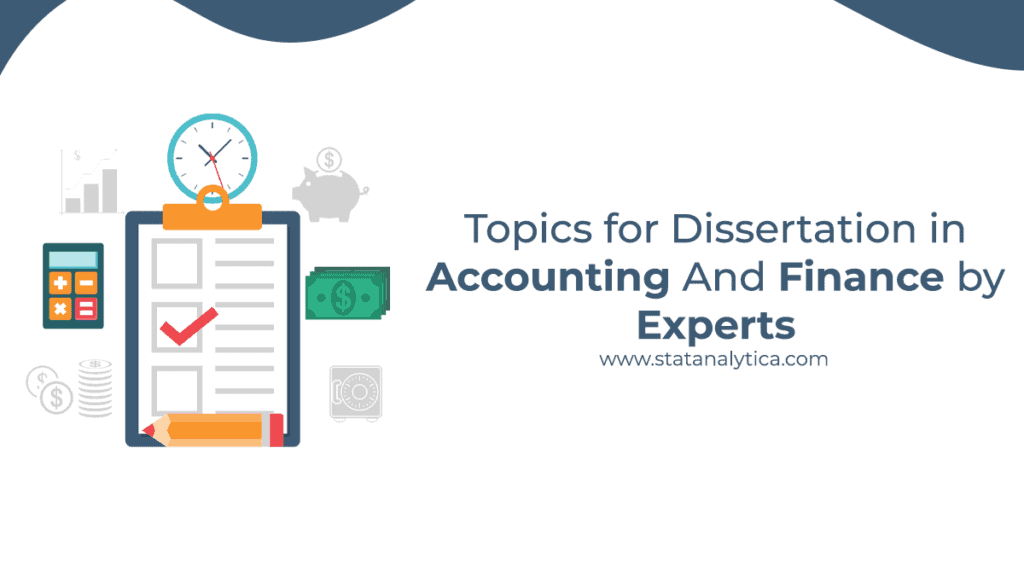There are numerous uses of accounting in the world. Here in this blog post we will going to cover some of the top accounting uses that the business students should know.
Gentleman, do you want to save money to buy your favorite car? Hi, Ladies, do you want to get the dress you had seen last time when you went window shopping? Of course!! Who doesn’t want that?
But now the question is how can these dreams come true. Well, this is only possible with accounting. There are several uses of accounting by which you can’t only save your money properly but also monetize it effectively.
Don’t have enough knowledge about accounting? Don’t worry below; I have mentioned the top 7 uses of accounting along with other useful information. So, scroll down the page and get familiar with the usages in detail.
| Key Point: What is accounting and its uses? Accounting is the method of recording financial transactions about a business. The process of accounting involves analyzing, summarizing, and reporting the transactions for oversight agencies, tax collection, and regulatory entities. Accounting can be used for: making proper planning and budgeting,making decision-making for users,measuring the performance of the business,understanding the financial position and more. [More uses of accounting are discussed below.] |
First, what are the 5 purposes of accounting?
Table of Contents
The main purpose of accounting is to provide the person with effective financial knowledge. This knowledge further helps him/her to make smarter and excellent business decisions.
Moreover, the other 5 key purposes of accounting are as follows:
- monitoring activity,
- management of the business,
- recording transactions,
- controlling businesses,
- measuring the financial performance.
Now, clear my point, do I need someone to handle my accounting books?
The good news is that NO, you don’t need some to handle your account book.
Moreover, it has been seen that if you ask any eCommerce business owner about which is the least favorite job’s part, then the most answer is “accounting.”
Still, 41% of small business owners state that they handle their accounting books without anybody’s help.
Apart from this, there is the fact that 19% of people saw themselves as high financial literates, but actually, they are “financially” literates.
Here, my aim is not to discourage you from handling your own books with this data. But my only and only objective is to grab your attention to the point that “accounting is important.” Also, understanding the uses of accounting is quite easy.
So, What are the most interesting uses of accounting?
Accounting considers as “Language of business.” This is the method of delivering financial information to various users to make better business decisions.
So, why do we use accounting? Let’s find out the most interesting uses of accounting below.
How does the student use the concept of accounting to pursue their studies?
Save money
Students have limited money, and they have to manage their educational and personal expenses within that amount of money. That is why students can use the concepts of accounting to manage their expenses.
Accounting is not only helpful for saving money but also allows you to manage your expenses. It eliminates the use of extra expenses so that you can wisely decide where to spend.
Get study loans
Almost 42% of the students all over the world pursue their higher studies taking study loans. To get the desired amount of loan, students need to show accountability that states that they can easily pay the loan amount in the future.
This is the place where students can use accounting. Moreover, accounting helps the students to get loans with the minimum interest rates.
Also Read
- Make financial strategies
I have already mentioned that students need to manage their expenses. Therefore, using the accounting concepts, students easily make their financial strategies.
Here financial strategies mean that they have to plan out the things to manage their study expenses and personal expenses. The better the students have the plan, the more chances of moving forward without facing any financial issues.
How do business owners use accounting to manage the expenses of the company?
Budgeting and planning
It is always important for business owners to plan the methods to use the limited resources. These resources can be a machine, cash, labor, and other equipment.
The essential elements of budgeting, business management, and planning allow the business to grow ahead. These accounting plans support various segments’ coordination within a company or an organization.
Decision making
Accounting helps in making better business-related decisions. Moreover, it helps the owners to develop policies to enhance the business process’s efficiency.
Let’s look at the examples of the decision that depends on accounting.
- prices that need to be changed for a particular service and product,
- the availability of the resources required to make the service and product,
- business and financing opportunities.
Business performance
With the help of analyzing the accounting reports, business owners can check the performance of their business. These accounting reports are reliable measuring resources that indicate key performances.
Moreover, the business owners can easily compare their own performance with the last year. Also, they can understand the methods to compete with their competitors and check their financial position.
How do organizations use accounting to get maximum profit?
Control
With the help of several checks across the company, accounting is quite useful to avoid losses. These losses can be fraud, damages, mismanagement, theft, errors, and obsolescence.
Therefore, there should be control in the company. The internal controls can safeguard most of the assets and help in avoiding long-term losses.
Financing
One of the most interesting uses of accounting is financing. Accounting supports business owners in preparing historic finance reports.
Moreover, using accounting, you can create financial projections. These projections are useful in securing investment and helpful for applying for business loans.
Recording transactions
One of the essential uses of accounting is transaction recording. Accounting helps in maintaining accurate, systematic, and complete reports. These reports are of all the business’s financial transactions.
The reports consider as the backbone of the accounting system. It is important to note that the business owners must review and retrieve the transactions in the hour of need.
Liquidity
The most common reason for a small business’s downfall is the mismanagement of cash. Using accounting, you can determine the business’s liquidity that refers to the money and another liquid resource.
The information on liquidity is useful in reducing the bankruptcy risk by detecting the bottlenecks (managerial accounting tool).
It is clear that there are various essential uses of accounting, but can I learn accounting on my own?
When you go through the above section of uses of accounting, it is cleared to you that accounting is quite important.
So, why shouldn’t I start learning it!! Or is it possible to learn about accounting on my own?
Yes, it is possible that you can easily learn accounting on your own.
How?
Well, below are some of the useful tips that help you understand the concept of accounting. Follow the tips regularly to see the difference in your accounting knowledge.
| First, get familiar with the difference between bookkeeping and accounting. Understand the methods to create spreadsheets. Read different books that explain concepts of accounting. Practice recording credits and debits. Understand the methods of financial statements. Learn the ways to develop an income statement. Create the balance sheets. Understand the rules and measures of the FASB (Financial Accounting Standards Board). Understand the Generally Accepted Accounting Principles (GAAP). Learn about the cash and accruals. |
Do I need to use any software or online service for my small business?
You have understood that there are various uses of accounting. But now, you might be thinking that whether you need software even if you have a small business.
Well, it totally depends on you. But it has been seen that accounting software and apps can save you from the heaps of the times on expense management, sales recording, and much more.
Therefore, 56% of the small business owners use them for their businesses.
Then, suggest the best accounting software for my business!!!
There are various tools available in the market for accounting, but I have come up with the best of the best software. And the software is:
| Best for bookkeepers: FreshBooks | |
| Best for a small sale team: OneUp | |
| The Best for micro-businesses: Zoho Books | |
| Runner-Up (Best overall): Xero | |
| Best overall: QuickBooks | |
| Best for value: Wave |
| BONUS: Kashoo and Sage are two other best accounting software that you can use for your business. |
Conclusion
You do not need to be an accountant to understand the uses of accounting. With the proper guidance about the usage of accounting, you can easily handle your own expenses and savings.
Above I have provided you the details about the uses of accounting and mentioned other important information about accounting. Hope, it will help you to understand where you can implement the concept of accounting.
If you have any queries regarding accounting assignment help, comment in the below section, Our accounting help experts will help you solve your doubts.
“Read more Statanalytica blogs about accounting to give a boost to your knowledge.”
Frequently Asked Questions
What are the characteristics of accounting?
The main characteristics of accounting are as follows:
Relevance.
Comparability.
Objectivity.
Understandability.
Consistency.
Reliability.
What are the 4 functions of accounting?
The main functions of Accounting are;
formation of planning,
cost control,
prevention of errors and frauds,
control of financial policy,
preparation of the budget,
evaluation of employees’ performance.
What are the types of accounting?
There are various types of accounting, such as:
Cost Accounting.
Managerial Accounting.
Tax Accounting.
Fiduciary Accounting.
Financial Accounting.
Auditing.
Accounting Information Systems.
Forensic Accounting.

